It's mid-October and the festive fever has begun. Diwali has always been a time of rituals, celebration, gifting, indulgence and impulsivity with a lot of shopping happening across platforms. And this year, things are shaping up differently.
Trends dominating our daily lives have penetrated this ancient celebration. The emergence of quick commerce is driving spontaneous sales, unlike the more planned and well-thought-out purchases of previous years. At the premium levels, brands are indulging customers in high-quality, healthy and environment-conscious provisions. And the desire for visually appealing products that make photogenic gifts is picking up in popularity.
Avi Kumar, Chief Marketing Officer at FNP, tells us that there is a projected 20-25% growth in demand, driven by a shift towards more thoughtful and premium gifting. “Compared to previous years, consumers are looking for curated, personalised and memorable experiences.” Convenience and speed are also major factors in shaping buying behaviour.
What are the specifics within sectors?
Beauty & Personal Care
The festive period sees an increased focus on self-care, gifting and glam looks. The rise in consciousness around ingredient transparency is also driving more demand for clean beauty and sustainable options. “We’re seeing a strong focus on skincare purchases to achieve that flawless festive glow, along with increased demand for colour cosmetics to create bold makeup looks,” a spokesperson of Tira tells us.
They are noticing a growing preference for multi-functional products that simplify beauty routines. Customers are gravitating towards serums, tinted moisturisers and hybrid products that blend skincare with makeup. As for festive makeup trends, Rishabh Sethia, Director & Business Administrator at MARS Cosmetics, tells us that the focus is on radiant skin and bold colours — deep reds, shimmering golds and festive greens that add extra charm.

Sethia tells us that the segment is expected to surge by 35% and quick commerce platforms are expected to take a large portion of the festive season market share in top cities. D2C brand Fix My Curls has been focussing on same-day delivery services to cater to the growing demand for quick commerce. “We are also introducing value boxes that offer bundled products at competitive prices, appealing to customers looking for both convenience and savings,” Anshita Mehrotra, Managing Director at Fix My Curls, tells us.
Mini Sood Banerjee, Assistant Director and Head of Marketing at Amorepacific India, tells us about the marketing strategies used to appeal to customers. “A substantial focus is placed on digital platforms, particularly social media and influencer collaborations, as they effectively engage our target audience.”
Confectionery
Indian festivals and mithai are absolutely synonymous, and over the years there has been a shift in the kinds of indulgences consumers prefer. “Consumers are prioritising premium, healthy products for gifting, with a focus on personalised, elegant and beautifully packaged options,” says Hamza Patel, Managing Director and CEO, AP Group (Bateel), whose offerings include gourmet dates and gift hampers.
In the luxury mithai segment, the consumer is less focused on price but on the quality of ingredients and presentation. “Customers want sweets made with natural, high-end ingredients and are willing to pay extra,” Sid Mathur, Founder of Khoya Mithai, tells us. “There’s also a growing interest in healthier options, like lower sugar and organic ingredients,” he adds.
The overarching trend for the season this year is premiumisation. Umesh Madhu Agarwal, Executive Director at Misree by Haldirams, tells us that consumers are more value-conscious, seeking out high-quality offerings that feel luxurious and thoughtful. “Personalisation will be a key driver, with people gravitating towards custom and exclusive gifting options,” he adds. And to make shopping for sweets convenient, brands are focussing on developing a strong omnichannel presence.
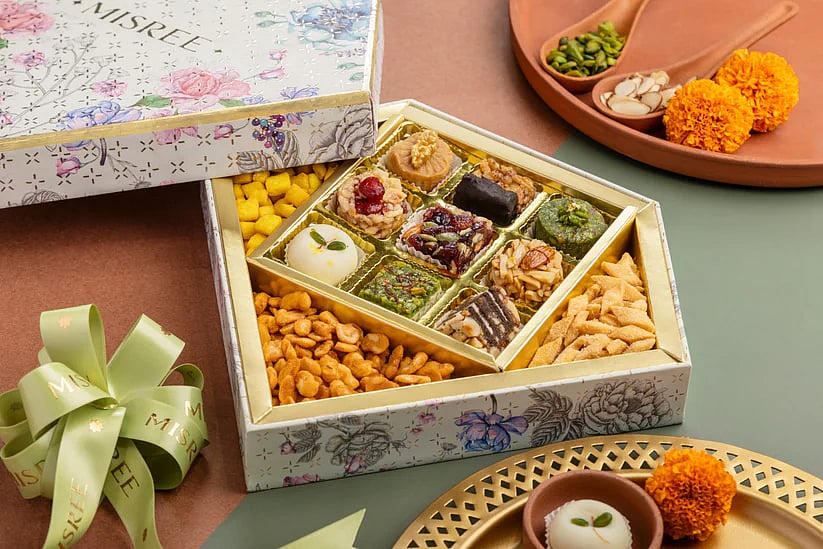
Jewellery
While gold prices have increased recently, leading to some softening in sales, Saurabh Gadgil, Chairman and Managing Director of PNG Jewellers, maintains that the overall sentiment in jewellery remains bullish. “Gold continues to be viewed as a sound investment, and current price levels do not deter buyers,” he says. A similar momentum is felt within all categories including diamonds, platinum and silver.
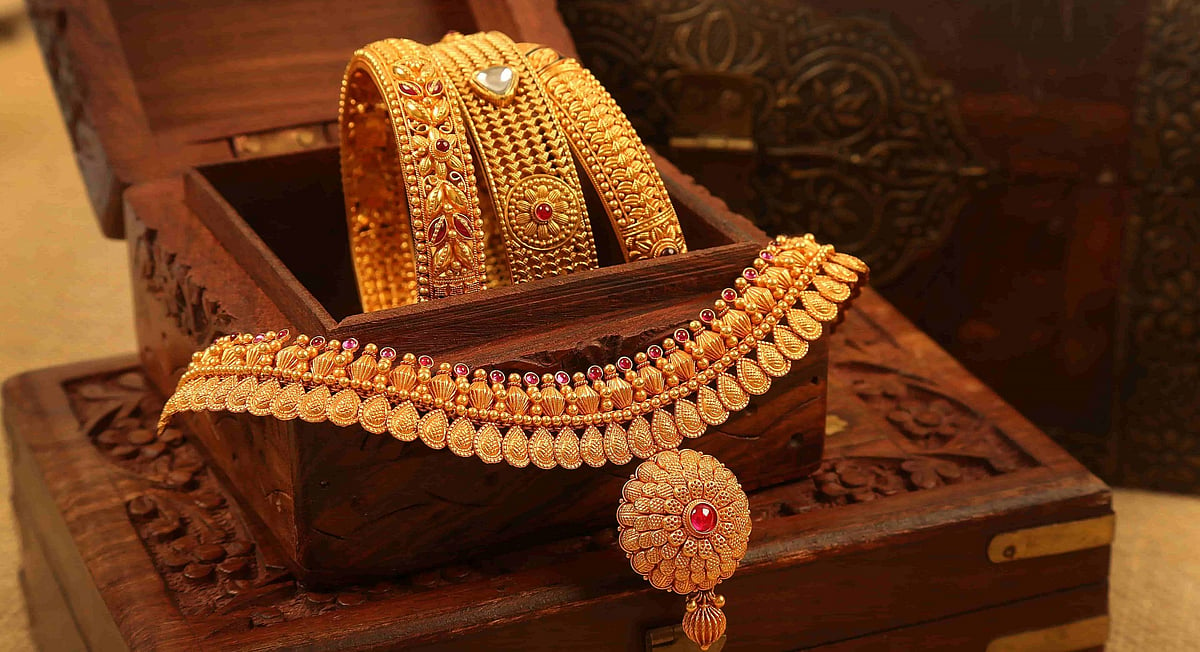
For the Diwali period, which is one of the most important buying occasions in the Hindu calendar, CaratLane is set to provide for the demand with their launch of over 400 new designs. The brand even stepped out of their niche of diamond jewellery, adding plain 22-carat gold jewellery to their offerings, Atul Sinha, Chief Operating Officer of CaratLane, tells us.
Shoppers are increasingly seeking items that hold sentimental value – gifts that symbolise personal bonds and celebrate special moments. “In the premium jewellery segment, there is a growing desire for timeless and versatile pieces,” says Samir Jain, Founder, Miss Jo Jewellery.
Furnishings & Home Decor
Decor and furnishing account for a big part of festive purchasing as they make for great gifts and homeowners, too, are eager to refresh and enliven their homes. “As people prepare their homes for gatherings and festivities, there’s a noticeable shift towards purchasing high-quality, aesthetically pleasing textiles,” Navya Khanna, Co-Founder of Sadyaska, tells us.
Key product categories that typically see increased demand include living room furniture such as sofas and recliners and dining room sets to accommodate holiday entertaining. People are also more inclined to invest in accent furniture like coffee tables, pouffes and decorative items to enhance the festive feel of their homes.
Manan Lodaria, Founder of Darsh Designs, talks about ways brands can strategise sales by leveraging digital tools, such as augmented reality (AR), to help customers visualise furniture in their own homes, reducing hesitation in purchasing big-ticket items. “Flexible payment options like ‘Buy Now, Pay Later’ and interest-free EMIs can also ease the purchasing decision for higher-priced products,” he adds.
“To provide for the growing trend of incorporating nature into urban living spaces, planters have come into a space of high demand,” Kapil Vaishani, Founder of Bonasila, tells us. Fibre-reinforced plastic planters are lightweight, durable and aesthetic, making them a long-term resource for beautifying indoor and outdoor spaces.
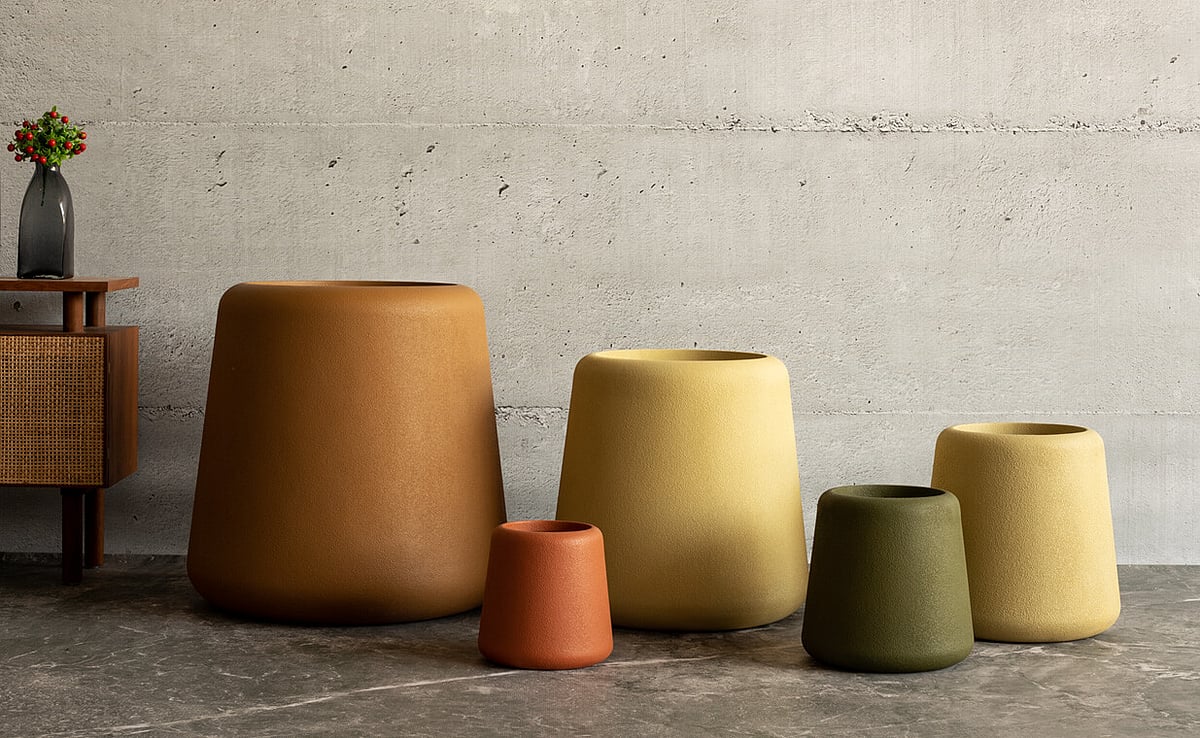
Another festive demand is a traditional take on contemporary designs, such as motifs and traditional prints in modern avatars. “Consumers are also getting more mindful of the fabrics and materials used – and so sustainable products are moving from niche to mainstream,” says Aakanksha Batra, Founder of The Green Collective.
Pet Care
The post-pandemic boom in pet care hasn’t died down. People getting to stay home and spend more time with their furry friends has created growing awareness about their pet’s needs. Specialised food, smart toys, health supplements and pet-friendly home designs are burgeoning.
Rashi Narang, Co-Founder of Heads Up For Tails, talks about the heartwarming transformation she’s seen with pet owners who’ve turned into pet parents, embracing their pets as family. “Pets are now part of many festivities at home including weddings, pujas and more. At HUFT, we introduced festive and occasion wear plus pet-friendly ladoos and barfis over 12 years ago as India-first products and now we see that growing,” Narang tell us.
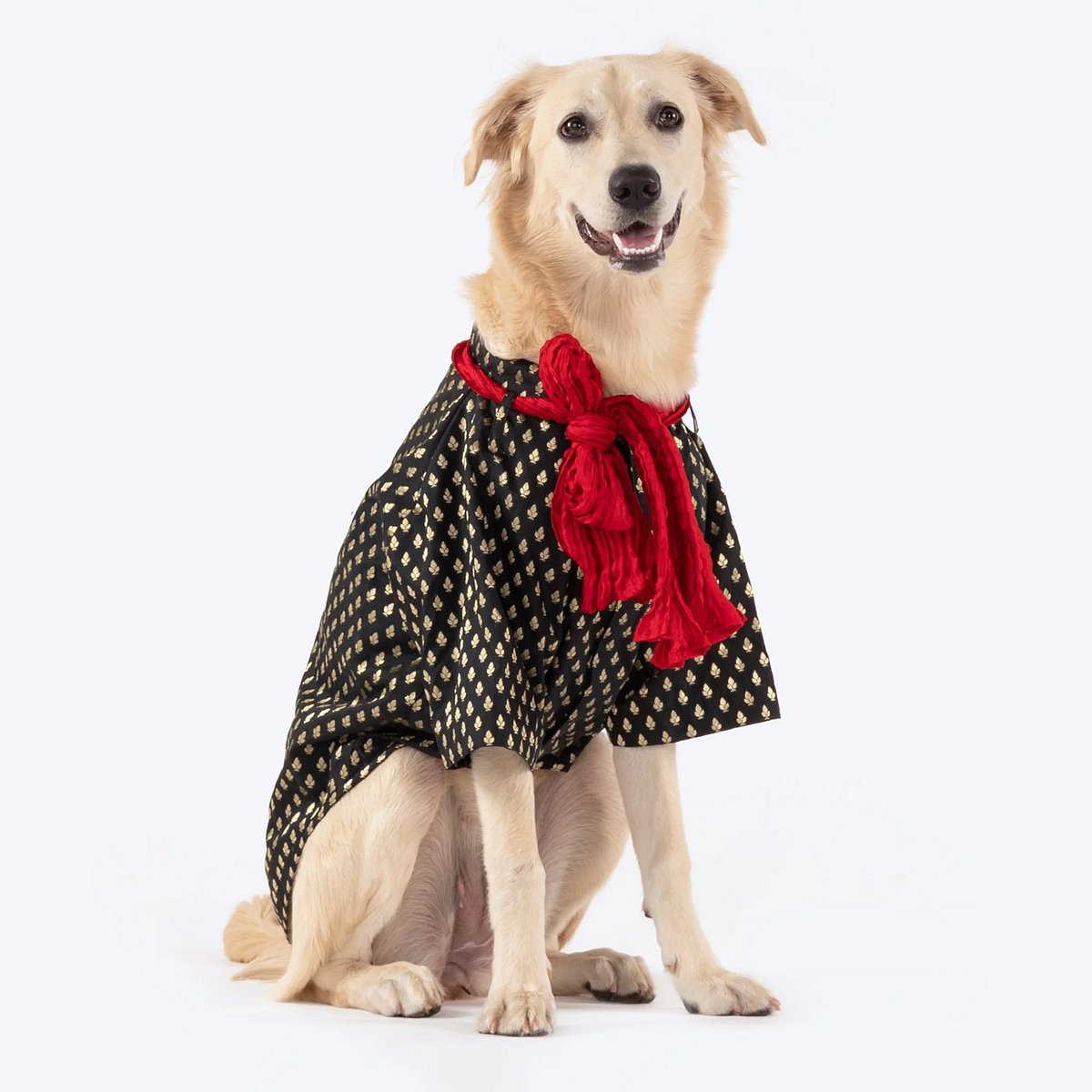
Travel & Hospitality
The 15-day festive period sees many Indian tourists travelling everywhere. And while there isn’t a specific destination, there are certain destinations that are favourites due to accessibility and value-for-money offerings, Shailesh Patil, Managing Director at Kesari Tours, tells us. “Popular in international travel are destinations in South East Asia like Thailand, Vietnam and Japan; in addition to Egypt, Turkey, Greece and Dubai which are all-time favourites.”
Since the season lasts only 15 days, when travellers find the prices of airfare and stay too exorbitant, they choose to travel closer to home. Kerala, Goa, Rajasthan, Ooty and Kodaikanal, in addition to places of religious spiritual significance like Agra, Haridwar, Rishikesh and Mysore, top lists.
RedBus, based on predictive data, is seeing good festive demand both nationally and within states and double-digit growth compared to last year, a spokesperson tells us.
The market’s move towards premium offerings has required tour curators to upgrade their offerings to luxury hotels and add more destinations to itineraries. Ankita Sheth, Co-Founder at StayVista, tells us about the luxury villa rental platform’s strategy, “We see festive time as the perfect opportunity to go beyond just a stay — it’s about creating an immersive festive experience.”
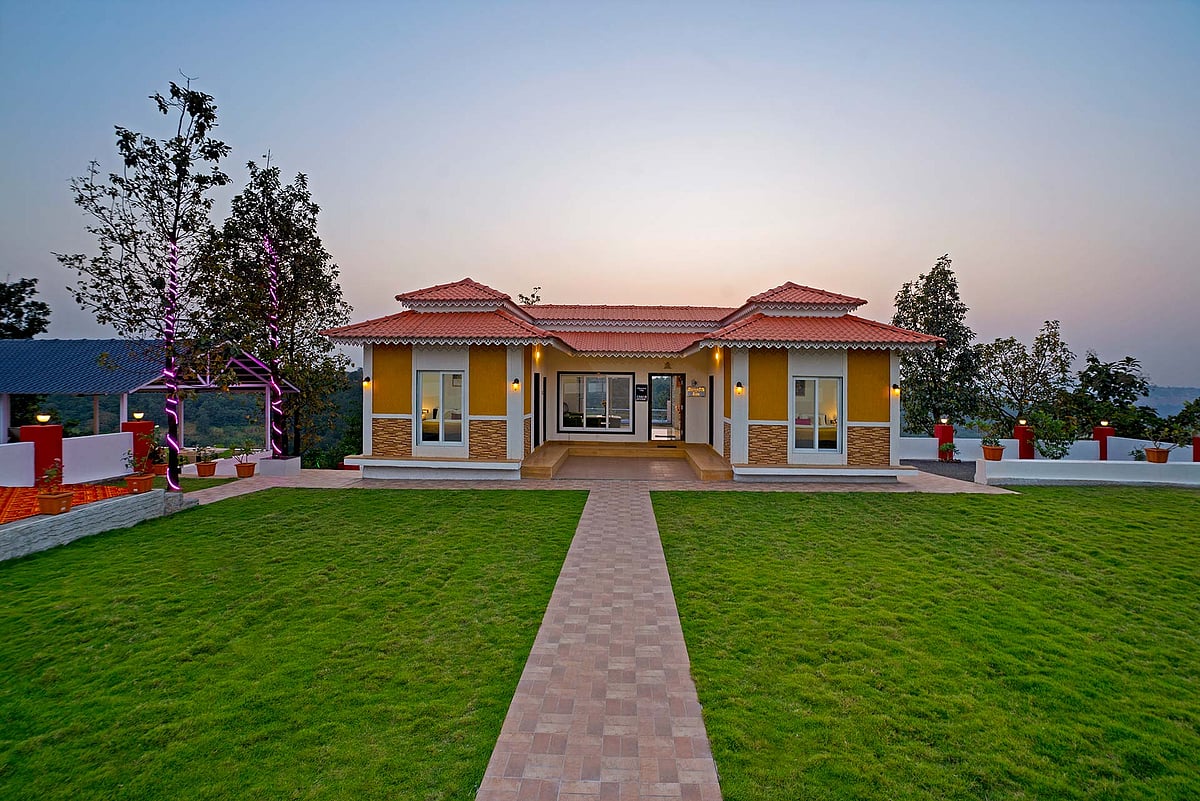
Hospitality brands are taking curated experiences to the next level with personalisation and adding celebratory touches like Diwali delights, festive decor and curated dishes that bring the flavours of the season to life.










